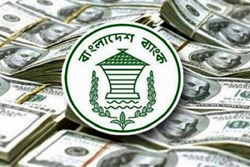
|
July 03, 2021 NEWSLETTER |

|
|
Bangladesh resumes mass vaccination with arrival of 45 million doses Bangladesh has received 4.5 million doses of the COVID-19 vaccine in four shipments, all of which arrived last week. The boost in supply is expected to ease the vaccine crisis in the country, bolstering its inoculation efforts amid a spike in coronavirus cases and deaths. Two flights brought 2.5 million doses in the first consignment of the Moderna vaccine while additional shipments of 2 million Sinopharm doses from China arrived about an hour and a half later, followed by two more flights. On the other hand, the University Grants Commission has asked residential students at public universities to register for the coronavirus vaccine shot on a priority basis. |
|
AL govt makes Covid test free for the poor, cash and food aid to deal with poverty amid lockdown 
The government has ordered the laboratories to test the poor for the coronavirus free of charge for the month of July. Moreover, plans are laid out to take necessary measures to provide cash assistance and food, including rice, edible oil and other commodities to poor who are affected during the ongoing countrywide "strict lockdown". According to media reports, two funds have been set up under the social safety net programmes in the new budget, and that money can be allocated from these funds for such programmes. During a special period like lockdown, they usually provide a packet having seven commodities -- 10 kilogram of rice, lentil, edible oil, dry food like noodles and others. The national hotline – 333 – would be launched to provide humanitarian assistance and food to the needy. |
|
Forex reserve hits record $46b 
Bangladesh's foreign exchange reserve last week hit a record high of $46 billion thanks to the upward trend of remittance. The reserves, one of the major macroeconomic indicators of an economy, went up 23.6% in the last one year to stand at $36.03 billion as of June last year, according to data from the central bank. The Bangladeshi diaspora sent remittances worth $22.83 billion in the first 11 months of this fiscal year, which is much higher than the total inflow of last year, when they sent $18.20 billion. On top of that, expatriate Bangladeshis sent $1.75 billion in the first 28 days of this month in contrast to $1.65 billion during the same period a year ago. |
|
Despite Covid-19 pandemic, average life expectancy of Bangladeshis goes up to 72.8 years 
The life expectancy of people in Bangladesh has increased by two months in a year to 72.8 years in 2020, with women having more than the average, according to the national statistics agency. Last year, the life expectancy was 71.2 years for males and 74.5 years for females, up from 71.1 years for men and 74.2 years for women in 2019, according to the report styled "Monitoring the Situation of Vital Statistics of Bangladesh". The number of deaths due to cold-related diseases, especially pneumonia, was low in 2020 due to health guidelines in place. On the other hand, the literacy rate among people above seven years old rose to 75.2% from 63.6% in 2015. Such a stellar accomplishment on different human development indices chiefly testifies the outstanding and prudent leadership of Honourable Prime Minister (HPM) Sheikh Hasina in securing her dream of turning Bangladesh into an advanced country by 2021. |
|
Bangladesh jumps 25 notches in global cybersecurity index 
Bangladesh has jumped up 25 places to be ranked 53 in the Global Cybersecurity Index 2020, according to a report published by the International Telecommunication Union (IUT), a specialised agency of the UN, to measure the commitment of its member states to cybersecurity aiming to promote cybersecurity awareness. The GCI results show overall improvement and strengthening of all five pillars of the cybersecurity agenda—legal measures, technical measures, organisational measures, capacity development measures, and cooperation measures. The index reported Capacity Development and Technical Measures as the areas of relative strength for Bangladesh, while the Legal Measure category fell under the areas of potential growth for the country that is currently in the developing or LDC stage. |
|
AL government takes up 10 year action plan for food, nutrition security 
The government launched a ten-year action plan for achieving the objectives of the National Food and Nutrition Security Policy (NFNSP). The NFNSP aims to ensure that Bangladesh achieves its food and nutrition security-related Sustainable Development Goals (SDGs) and fulfils national and international commitments. The food planning and monitoring unit of the food ministry in collaboration with the Food and Agriculture Organisation of the United Nations (FAO) prepared the policy. Within the space of last 12 years, the country has broadly achieved self-sufficiency in a number of important foods while rising incomes and declining incidence of poverty indicate that access to food has also improved so far, thanks to the leadership of HPM Sheikh Hasina. |
|
Bangladesh gets $300m in World Bank loans for rural economy, COVID resilience 
The Bangladesh government and the World Bank have signed a $300 million financing agreement to boost rural economy and build resilience to effects of the COVID-19 pandemic. The deal is expected to help about 750,000 poor and extreme poor rural people across 20 districts come out of poverty and build resilience to the pandemic and any future shocks. Through income-generating activities, livelihood and entrepreneurial support, as well as skills development for the poor and extreme poor people, the Resilience, Entrepreneurship and Livelihood Improvement or RELI Project will help boost the rural economy in about 3,200 villages, according to media reports. |
|
BANGLADESH AWAMI LEAGUE |




|